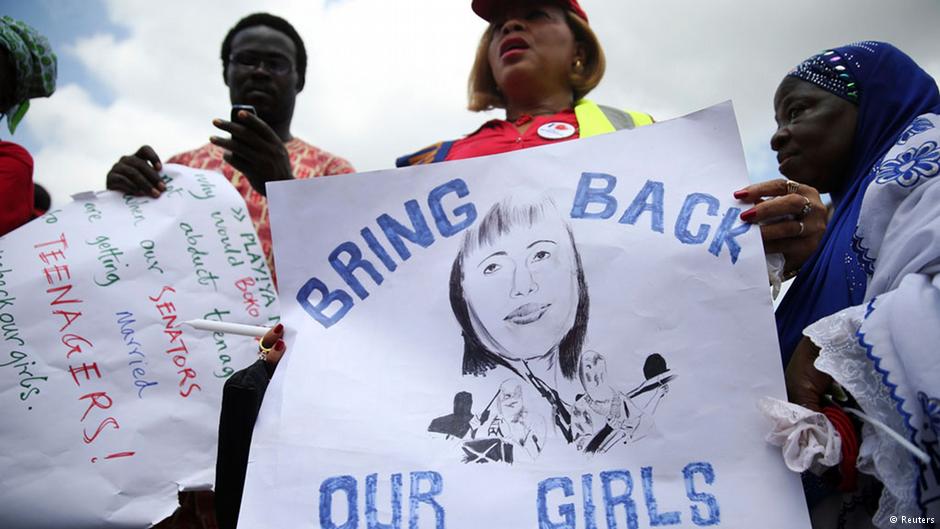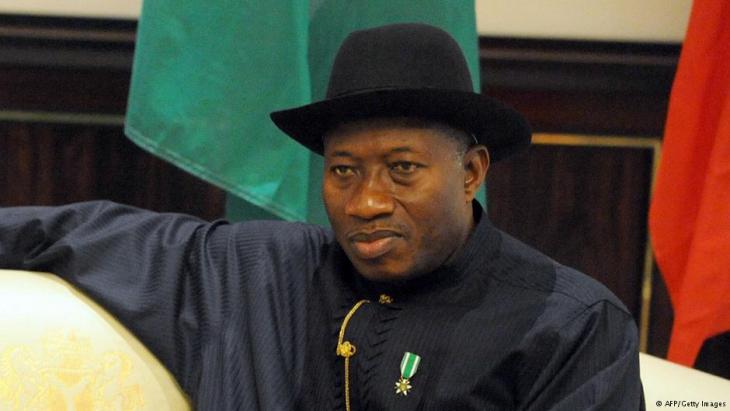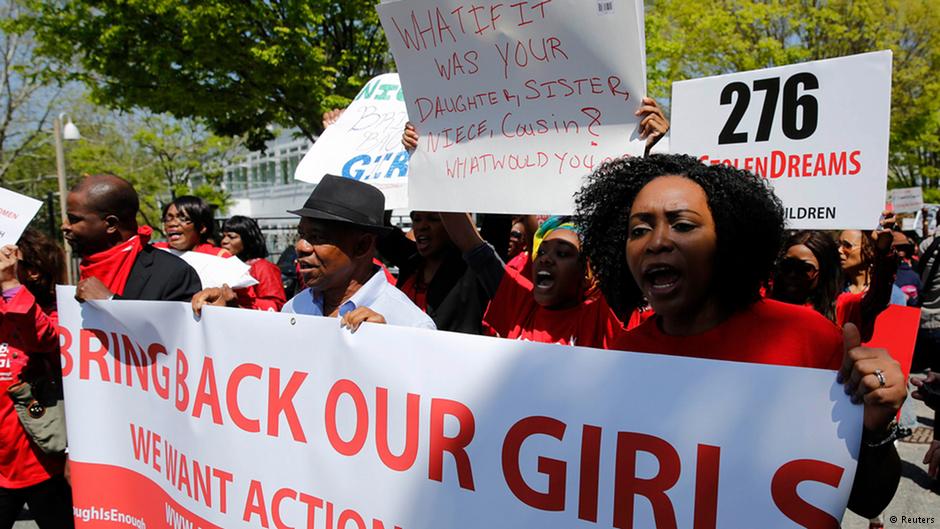Failing the mothers and daughters of Nigeria

How many Nigerian schoolgirls were kidnapped? Was it 200, 276 or more than 300? Are they in Cameroon, Chad or somewhere "in the dense forests of north-eastern Nigeria" as some news outlets have speculated? No one knows anything for certain because facts and figures are not always reliable in Nigeria, and those who know something are not allowed to say anything.
Nigeria's democratically elected but increasingly embattled president, Goodluck Jonathan, has advanced the militarisation of the country. He is counting on the army to secure his re-election in 2015. Critics – even well-meaning critics – are sidelined; some have even ended up behind bars. In some states, a state of emergency has been in place for months with roads and communications cut off and curfews imposed.

6,000 killed in five years
Not all abductions by Boko Haram are publicised, and the whole truth is rarely told when it comes to attacks. Some 106 people were killed in mid-February, over 40 at the end of February and 106 more in April. On 6 May alone, more than 200 lost their lives. These numbers represent enormous suffering, but hardly anyone can verify them.
In the past, these figures have not been greeted with much empathy in the West. After all, some cynics think, large numbers of people are regularly killed in Nigeria as a result of pipeline explosions and ferry accidents. In less than five years, the Islamist miitant group Boko Haram has slaughtered over 6,000 people. The army has responded with vengeful attacks that have also hit innocent bystanders and intensified the conflict.
Commissions have been established; numerous reports have been written. But dialogue between the group and the government has never taken place. President Jonathan seems to be convinced that military force alone can bring Boko Haram to its knees. Perhaps he hopes that such a strategy will allow him to portray himself to voters as a strong man and to the rest of the world as a self-confident leader.
Recent data has confirmed that Nigeria is Africa's biggest economy. The gross domestic product (GDP) of Africa's most populous nation has overtaken that of South Africa, which was previously the continent's biggest economy. How fitting then that the World Economic Forum on Africa is currently taking place in Abuja. However, instead of receiving praise and honour for such an event, Nigeria is facing growing criticism and uncertainty.

Goodluck Jonathan's nadir
Although such possibilities exist, Jonathan has neither sought to contact the people affected by these terrorist acts nor has he made any effort to reach out for dialogue with the Islamists, for example through religious leaders.
The mass kidnapping of 200 or 300 school girls in Nigeria is notably the lowest point of his political career. A TV appearance which he hoped hoped would defuse the tension ended up being a PR disaster with the president saying he was happy that the girls were unharmed.
His remarks must have enraged the hundreds of women who have been protesting in Abuja for days. Buoyed by the attention the world is now paying to the plight of the girls, the women's anger is now directed not only at the holy warriors who are treating the girls as commodities but also at a government they see as being inefficient and insensitive.
Even US President Barack Obama was forced to react to the unexpected public pressure within his own country: for days, Nigerians have been taking to the streets and calling for the girls' safe return. Military and FBI specialists are now to help in the search for the missing girls. However even this announcement should be taken warily. US experts are still searching in vain for war criminal Joseph Kony, leader of the Lord's Resistance Army, in the vast expanses of Central Africa.
But what is new and commendable is that the world has set aside its indifference for a moment and is sharing in the suffering of Nigerian mothers and supporting the civil society protests there. For the moment, this is the only good news for Nigeria.
Claus Staecker
© Deutsche Welle 2014
Editor: Robin Eberhardt/DW and Aingeal Flanagan/Qantara.de
